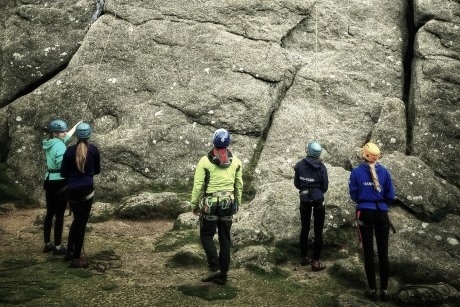
A look at the interim results of the Outward Bound Trust's latest research study, which suggests that outdoor learning can have a lasting positive effect on pupil self esteem and self-efficacy.
This month, the Outward Bound Trust released the interim results of an 18-month research project into the effect of its courses on the academic performance of disadvantaged pupils.
The results suggest that challenging learning, delivered in the outdoors, can have a lasting impact on both the self esteem and self efficacy of pupils that goes on to impact the way students approach their school work back in the classroom.
About the research
Begun in 2016, the study was carried out by RM Insight; an independent company that works with both local authorities and charities to identify and communicate the social outcomes of various projects.
The company followed and analysed a group of GCSE students before, during and after they participated on one of the Outward Bound Trust's outdoor learning courses.
The pupils involved in the study came from St Marks Academy; a South London school that features in the list of the top 20% of schools with students eligible for free school meals.
Most of those selected for the course were pupil premium students who were achieving below their potential at the academy. A number of them were known for their challenging behaviour inside the school and offending behaviours outside.
The course content, meanwhile, had been tailored by the Outward Bound Trust to develop the social and emotional skills of the students – helping them to become more aware of their own abilities and build their confidence – with the hope that this would then lead to better academic performance, particularly in GCSE results the following year, in Year 11.
Standardised measures were used to measure the intended outcomes for the course. Two of these were Roseburg’s self-esteem scale, and the general self efficacy scale.
A questionnaire was completed by students prior to attending the course and again in November 2016, six months afterwards.
A group interview with 12 of the students was also used to discuss their experiences on the course, how it had affected them in the short-term, and whether or how it had had any impact in the long-term.
The results
Results were positive for both the group as a whole and for individual students. Six months after the course, 97% of pupils had improved self efficacy scores, while 86% had upped their self esteem score.
“There were several occasions when pupils said that completing an activity had been physically and psychologically challenging and they had had to believe in themselves to continue,” explained Sally Ryder Taylor from the Outward Bound Trust. “This was a new experience for them and one that they felt had had a lasting impact.”
Several students also agreed that the course had had some positive impact on their school work in Year 11. In the interview stage of the research, pupils reported that the stronger self-belief had encouraged them to be more applied in their school work and less likely to give up when faced with challenges.
The full results of the research will be published in the coming months.
For more information about Outward Bound Trust courses visit www.outwardbound.org.uk.










